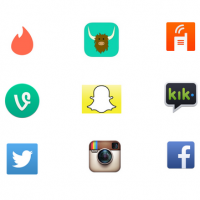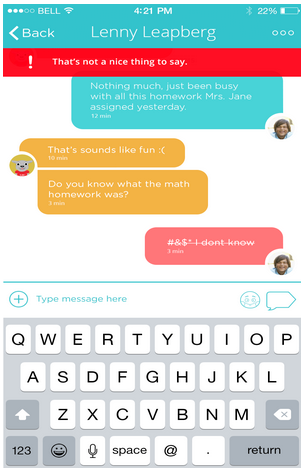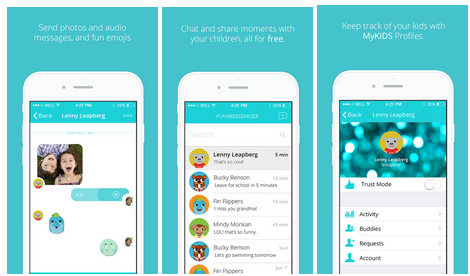This is a guest post from Sabba Quidwai (@AskMsQ) of EdTechTeacher – an advertiser on this site.

How many of the above tools did you recognize? Do you know which ones are safe and which ones are harmful? Do your students or children know the difference between them? How many of the above tools frighten you as a parent or a teacher? As the world becomes smaller, and children are surrounded by a variety of different communication tools, it’s time for us as adults to reevaluate what we mean when we teach children the classic lesson, “Don’t talk to strangers.”
The term “talk” used to be limited to face to face interaction, but with the rise of social media, the term “talk” can mean so many different things. This lesson used to also only apply to the dangers associated with talking to those who you do not know. Countless stories, however, will tell us otherwise – not only about the impact of what we share with those whom we know but also with those whom we do not know in the real world.
As adults, we can try to shelter students from these growing forms of communication or we can give them the digital citizenship skills they need to successfully navigate their digital world. The benefits and power that come with being a connected individual can far outweigh the negatives if students are taught from an early age what being a connected individual means in today’s world.
To assist parents and adults in this process, welcome to the Digital Playground, where your children can learn how to use social media tools to communicate and collaborate in a safe environment with the supervision they need to guide their experience with a new app called PLAYMessenger. This is an app designed specifically for kids but with adults in mind. Kids are given a sense of independence and are able to send text, pictures and voice messages to their friends and family, all while adults have peace of mind knowing that their children are safe and secure. Parents and teachers can use PlayMessenger working together to model the many ways students can be safe and responsible connected learners.
PlayMessenger has many great features, however what really drew my attention to the app was the language filter. Language filters monitor all text messages sent to kids and adults. Parents are alerted when their child has attempted to send another user an inappropriate message, and kids are warned when they have attempted to send an inappropriate message. This presents a great opportunity for adults to have conversations with children about how they are communicating and what the potential consequences can be for this type of behavior.
With PLAYMessenger, kids can send text, photo and voice messages to people approved by adults on their contact list. All child accounts are linked to an adult account, and the adults can manage the settings, monitor activity, view the chat history, and determine which users the child’s account is connected to.
Adults have access to “Trust Mode” where they can choose the level of oversight they want and personalize it for each child. When Trust mode is OFF, all messages and requests require parental approval before they are sent to a child, and when Trust Mode is ON messages and requests are sent directly to the child without parental approval. Again, this presents another great opportunity for adults to allow children to be responsible users.
To ensure that children are interacting with people who are who they say they are, all adult users are verified during the registration process through Privo to ensure they are who they say they are.
Let’s educate our children and guide their learning in the Digital Playground so they become responsible digital citizens who use the power of being connected for positive, safe and healthy interactions. PlayMessenger is available on iOS and Android platforms. To learn more visit the PlayMessenger web site.
You can learn more from Sabba this summer! She will be leading hands-on workshops for EdTechTeacher in Los Angeles and the San Francisco Bay Area.












